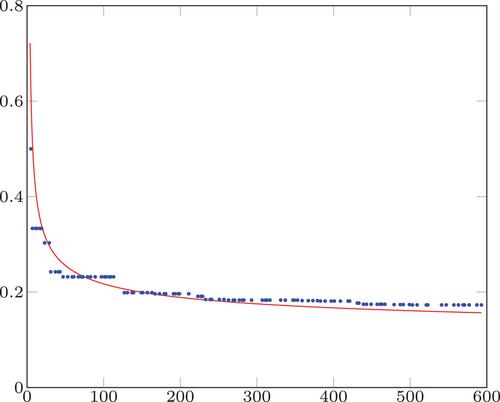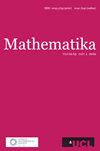强可分性序列和筛分方法
IF 0.8
3区 数学
Q2 MATHEMATICS
引用次数: 0
摘要
我们研究了强可除性序列,并得出了序列中只有(略微)大素因子的整数密度的下限和上限。我们将重点放在斐波那契数和椭圆可除序列的特殊情况上,并讨论了我们方法的局限性。文末附有桑德罗-贝廷(Sandro Bettin)关于除数闭集的附录,我们用它来研究强可分性序列中出现的素项的密度。本文章由计算机程序翻译,如有差异,请以英文原文为准。


Strong divisibility sequences and sieve methods
We investigate strong divisibility sequences and produce lower and upper bounds for the density of integers in the sequence that only have (somewhat) large prime factors. We focus on the special cases of Fibonacci numbers and elliptic divisibility sequences, discussing the limitations of our methods. At the end of the paper, there is an appendix by Sandro Bettin on divisor closed sets that we use to study the density of prime terms that appear in strong divisibility sequences.
求助全文
通过发布文献求助,成功后即可免费获取论文全文。
去求助
来源期刊

Mathematika
MATHEMATICS, APPLIED-MATHEMATICS
CiteScore
1.40
自引率
0.00%
发文量
60
审稿时长
>12 weeks
期刊介绍:
Mathematika publishes both pure and applied mathematical articles and has done so continuously since its founding by Harold Davenport in the 1950s. The traditional emphasis has been towards the purer side of mathematics but applied mathematics and articles addressing both aspects are equally welcome. The journal is published by the London Mathematical Society, on behalf of its owner University College London, and will continue to publish research papers of the highest mathematical quality.
 求助内容:
求助内容: 应助结果提醒方式:
应助结果提醒方式:


